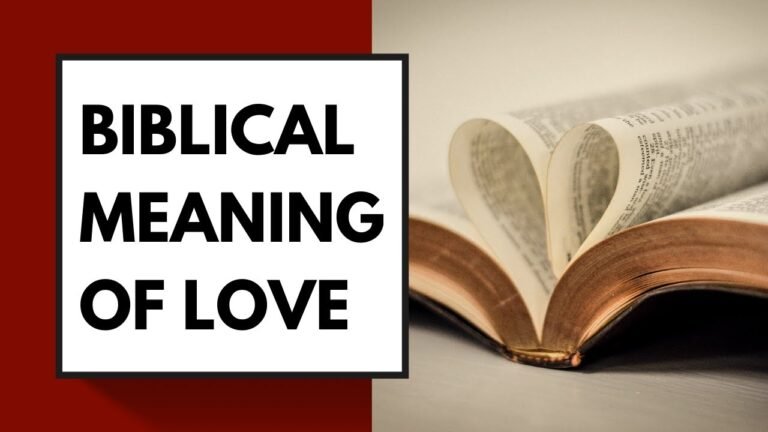The Role and Responsibilities of the Pope
In a world often seeking spiritual guidance and moral clarity, the role of the Pope stands as a beacon of hope and leadership. But what does the Pope do beyond the ceremonial duties and public appearances? As the head of the Roman Catholic Church, the Pope not only administers spiritual care to millions of followers but also engages in global diplomacy, advocates for social justice, and addresses pressing issues like climate change and poverty. This exploration delves into the multifaceted responsibilities of the Pope, revealing how this religious figure influences both the sacred and the secular realms.
What are the Pope’s main responsibilities today?
The Pope’s main responsibilities include spiritual leadership, guiding the Catholic Church, promoting peace, addressing social issues, and engaging in interfaith dialogue.
What duties does the pope fulfill?
The Pope serves as the Supreme Pastor of the Catholic Church, embodying Christ’s love and compassion for humanity. This role goes beyond mere leadership; it is a profound commitment to connect with individuals across the globe. By prioritizing personal relationships, the Pope aims to foster a deep understanding of the diverse experiences and challenges faced by people from all walks of life.
Central to the Pope’s mission is the act of listening. He seeks to hear the voices of the faithful, recognizing the importance of their stories, struggles, and triumphs. This engagement not only strengthens the bonds within the Church but also enhances the collective experience of faith. Through these interactions, the Pope becomes a source of comfort and guidance, reflecting the Church’s dedication to serving its followers.
Ultimately, the Pope’s role extends to sharing in the joys and sorrows of the community. By embracing the human experience in all its complexity, he reinforces the Church’s mission of compassion and solidarity. In doing so, the Pope not only leads the Catholic Church but also acts as a beacon of hope, inspiring individuals to live out their faith with love and empathy.
What activities does the pope engage in throughout the day?
The daily routine of the Pope is a blend of spiritual devotion and administrative responsibility. Each morning, he begins his day by celebrating Mass in his private chapel, a sacred time dedicated to prayer and reflection. This personal ritual sets a tone of tranquility and purpose, reinforcing his role as a spiritual leader for millions around the world.
After Mass, the Pope shifts his focus to the administrative tasks that accompany his position. He spends significant time at his desk, addressing correspondence that includes letters from the faithful, requests for guidance, and matters concerning the Church. This aspect of his day underscores the Pope’s commitment to being accessible and responsive to the needs of the global Catholic community.
To support the Pope in his daily duties, he is assisted by a small team of personal staff members. This includes nuns who manage his household responsibilities, ensuring that meals are prepared and the environment is conducive to his work. Additionally, a personal valet or butler is on hand to attend to his needs, allowing him to concentrate on his spiritual and pastoral mission without distraction. Together, these elements create a balanced routine that embodies both faith and duty.
Does the pope receive a salary?
The pope does not receive a salary in the conventional sense. Instead of a paycheck, he is supported by communal church funds that cover all his living expenses. This includes essentials like food, travel, housing, and medical care, allowing him to focus on his spiritual duties without financial concerns.
This arrangement reflects the unique role of the pope within the Catholic Church, where his responsibilities extend beyond mere governance to encompass spiritual leadership and outreach. By having his needs met through church resources, the pope can dedicate his time and energy to serving the global Catholic community and addressing pressing issues facing society.
Moreover, this system emphasizes the communal aspect of the church, where resources are pooled to support not only the pope but also various initiatives and programs aimed at helping those in need. This approach reinforces the idea that the church operates as a collective entity, prioritizing mission over individual financial gain.
Guiding Faith: The Pope’s Spiritual Leadership
In a world often marked by division and uncertainty, the Pope stands as a beacon of hope and unity. His teachings transcend cultural and geographical boundaries, inviting individuals from all walks of life to engage in a dialogue rooted in love, compassion, and understanding. By emphasizing the importance of community and the common good, the Pope encourages believers to see beyond their differences and work towards a more inclusive and harmonious society.
The Pope’s spiritual leadership is characterized by a profound commitment to social justice and the welfare of the marginalized. Through his messages, he calls for action against poverty, inequality, and environmental degradation, reminding us that faith must be accompanied by tangible efforts to uplift the downtrodden. This holistic approach not only inspires followers to live out their faith in practical ways but also challenges institutions and leaders to prioritize the dignity of every human being.
Ultimately, the Pope’s influence extends far beyond the walls of the Vatican, resonating with millions who seek guidance in their spiritual journeys. His ability to articulate complex moral issues in accessible terms fosters a sense of belonging and purpose among believers. By championing love and service, the Pope ignites a collective movement towards a brighter future, urging all of us to embrace our shared humanity and work together for the greater good.
A Global Influence: The Pope’s Impact on Society
The Pope serves as a powerful moral compass in today’s interconnected world, transcending cultural and national boundaries to inspire millions. His messages of compassion, peace, and social justice resonate deeply, encouraging followers to engage with the pressing issues of poverty, inequality, and climate change. By fostering dialogue among diverse communities and advocating for the marginalized, the Pope not only influences the Catholic Church but also shapes global conversations around ethics and humanity. His ability to address complex societal challenges with humility and hope reinforces the idea that spiritual leadership can drive meaningful change in the world.
Beyond the Vatican: The Pope’s Diplomatic Duties
The Pope’s role extends far beyond the spiritual leadership of the Catholic Church; it encompasses a unique diplomatic mission that engages with global issues. As the head of state of Vatican City, the Pope plays a fundamental part in international relations, fostering dialogue and cooperation between nations. His diplomatic duties often involve addressing humanitarian crises, advocating for peace, and promoting social justice, making him a pivotal figure on the world stage.
In recent years, the Pope has actively participated in discussions surrounding climate change, migration, and interfaith dialogue. His encyclicals and public statements resonate with a wide audience, encouraging both believers and non-believers alike to consider the moral implications of their actions. By using his platform, he seeks to bridge divides and inspire collective efforts toward a more just and compassionate world, emphasizing the shared responsibility we all have toward one another and the planet.
The Pope’s travels further amplify his diplomatic influence, allowing him to engage directly with leaders and communities across continents. Each visit is not merely ceremonial; it serves as a powerful reminder of the Church’s commitment to global solidarity. Through these interactions, the Pope cultivates relationships that transcend politics, fostering understanding and collaboration in pursuit of common goals. His unwavering dedication to diplomacy illustrates how spiritual leadership can profoundly impact the quest for peace and unity in an increasingly fragmented world.
The Pope serves as a vital spiritual leader, guiding millions through his teachings, promoting peace, and advocating for social justice. His role extends beyond ecclesiastical duties; he engages in diplomacy, addresses global issues, and fosters interfaith dialogue. By embodying compassion and humility, the Pope not only influences the Catholic Church but also inspires individuals worldwide to pursue a path of faith, hope, and service.







